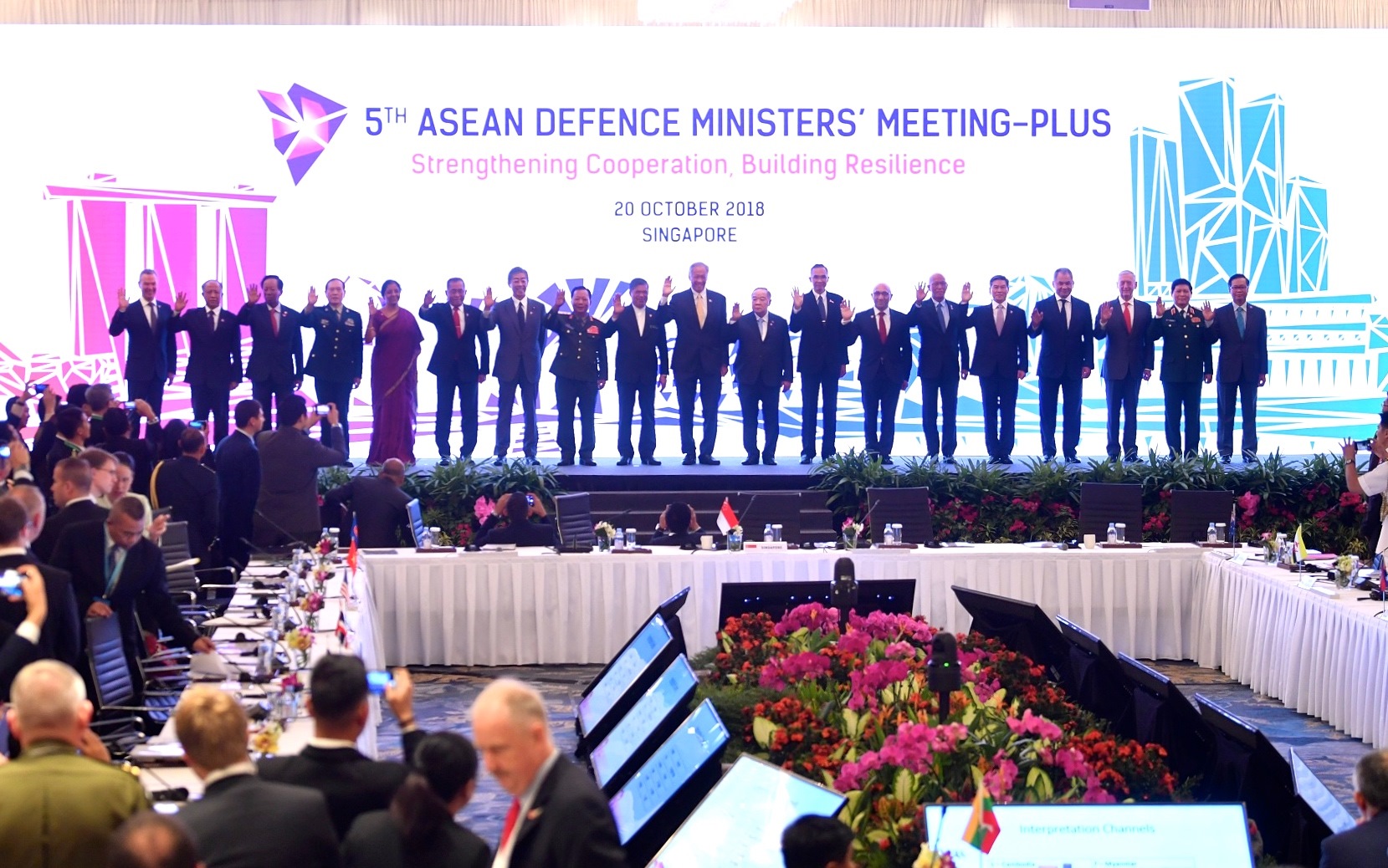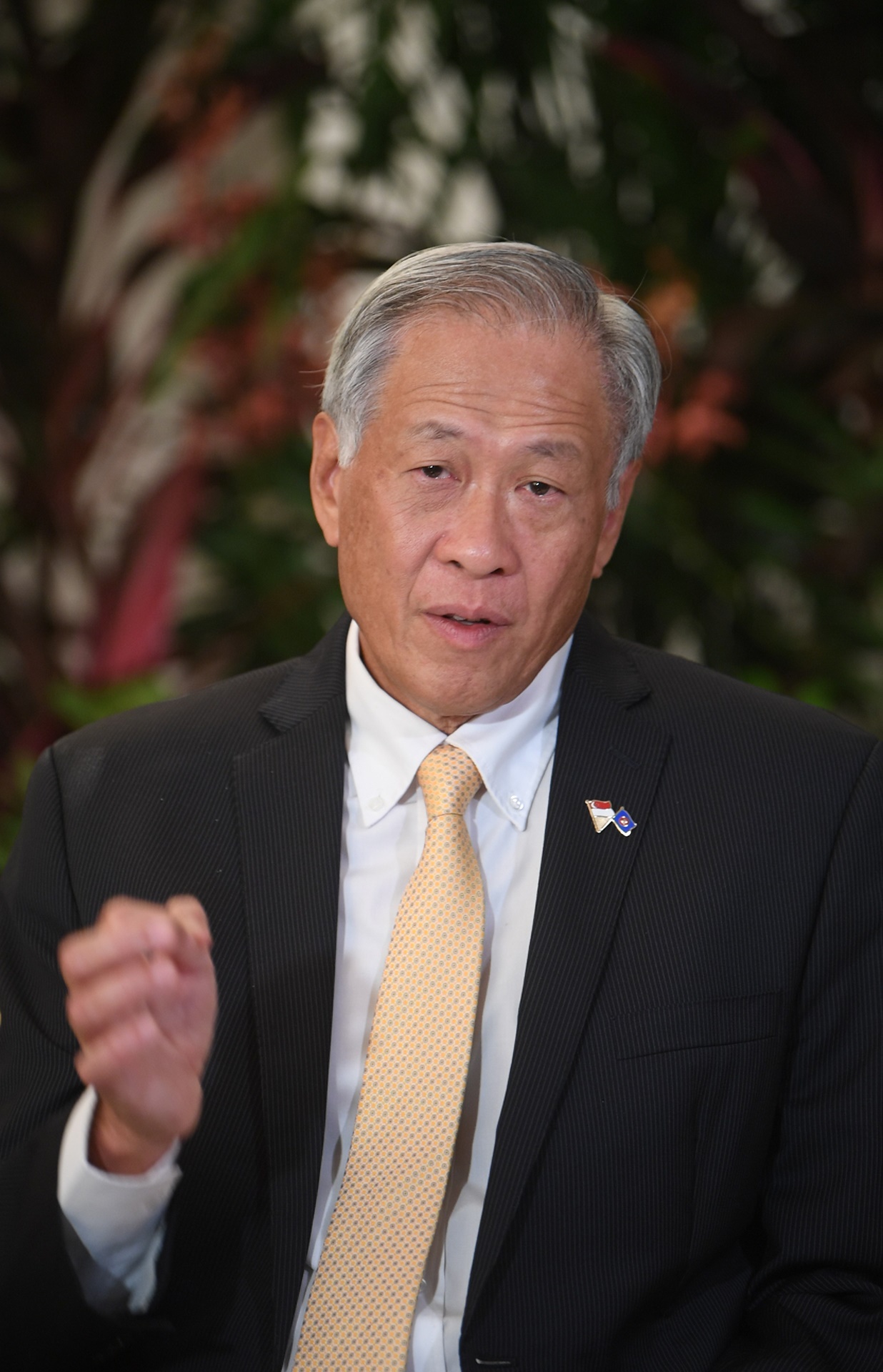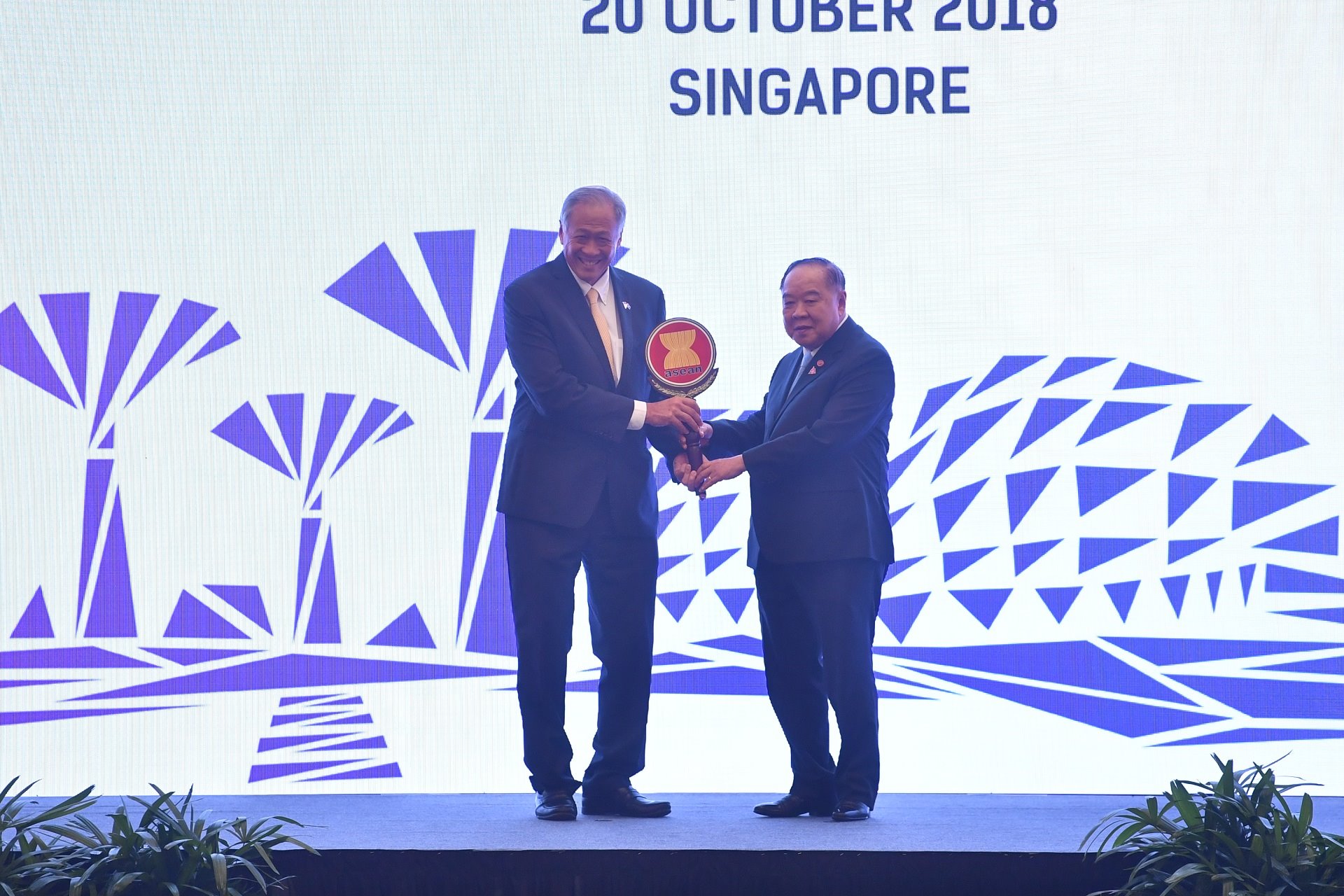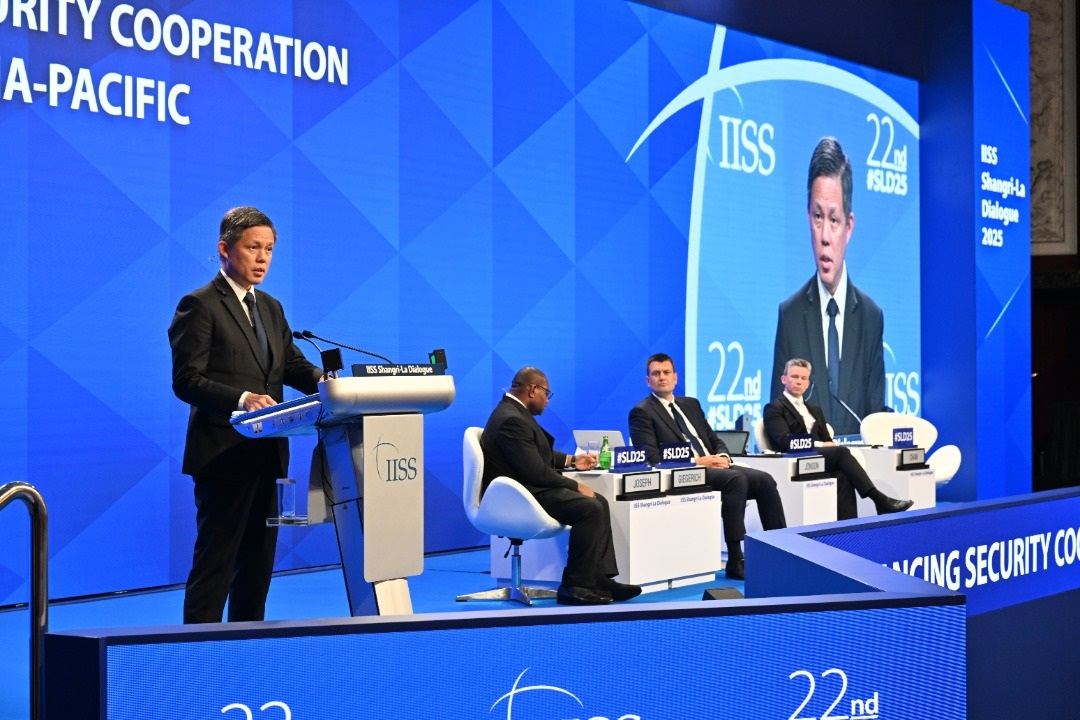DIPLOMACY
ADMM-PLUS COUNTRIES LOOKING TO ADOPT AIR CODE: DR NG
20 Oct 2018
With a combined total of 25 million troops across the 10 ASEAN and the eight ASEAN Defence Ministers' Meeting (ADMM)-Plus countries, the grouping accounts for a significant percentage of the world's military forces.
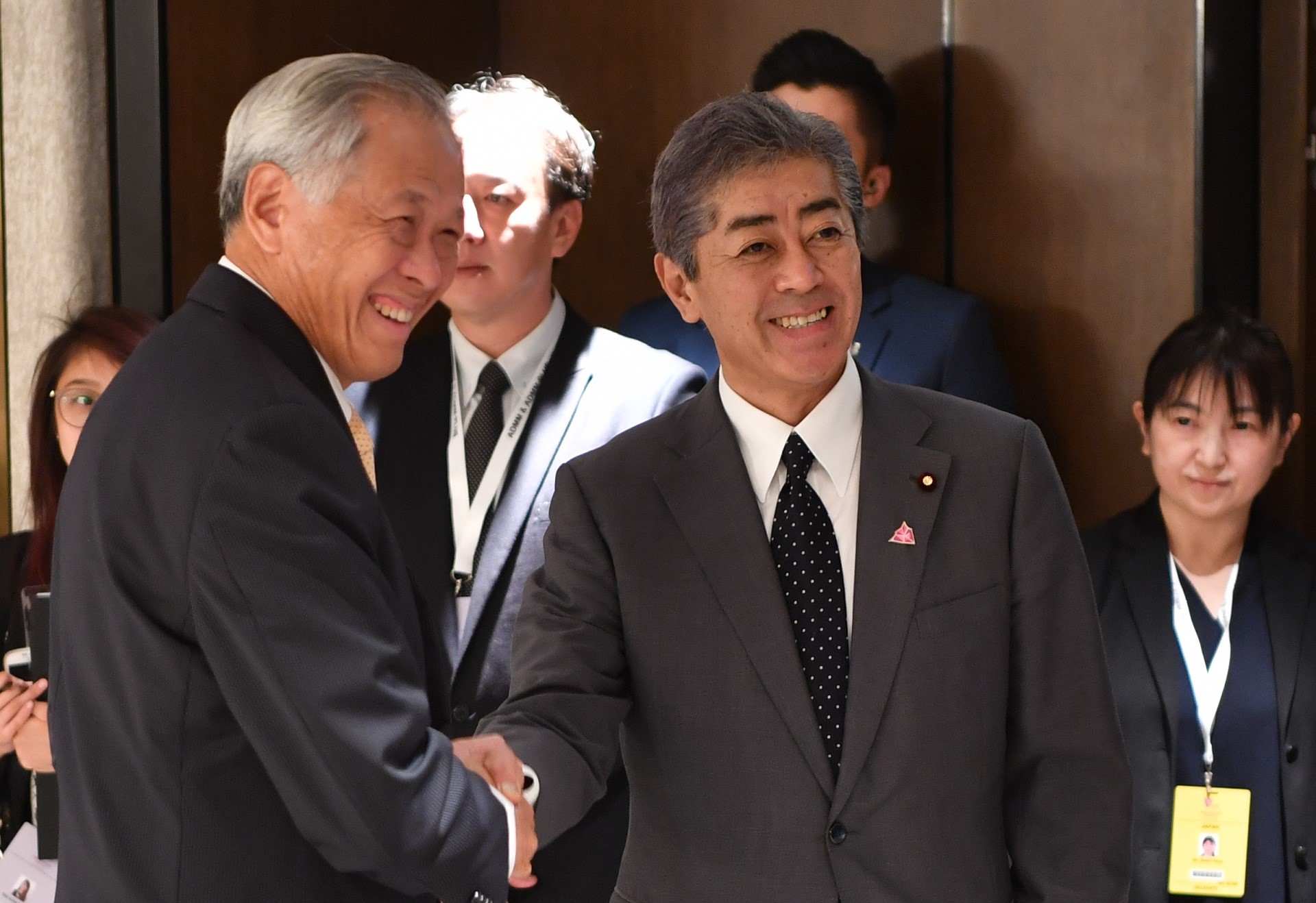
With a combined total of 25 million troops across the 10 ASEAN and the eight ASEAN Defence Ministers' Meeting (ADMM)-Plus countries, the grouping accounts for a significant percentage of the world's military forces.
This is why it was important for all 18 countries to agree on the world's first multilateral Guidelines for Air Military Encounters (GAME), said Minister for Defence Dr Ng Eng Hen after the 5th ADMM-Plus held on 20 Oct.
The eight Plus partners are Australia, China, India, Japan, New Zealand, the Republic of Korea, Russian Federation, and the United States (US). The GAME framework was signed by ASEAN defence ministers in a Joint Declaration at the 12th ADMM, held at the Shangri-La Hotel on 19 Oct.
A guideline to improve the operational safety of air lanes, GAME applies to unplanned encounters between military aircraft over high seas and describes the need for communicating appropriately, maintaining a safe distance and avoiding reckless manoeuvres.
Dr Ng also said that the Plus member states had agreed in principle to adopt the GAME framework. This agreement was within the Joint Statement on practical confidence-building measures that the 5th ADMM-Plus had issued during the meeting. The second statement issued was on preventing and countering the threat of terrorism.
Calling it a significant achievement, Dr Ng said: "It's a good start, we're taking concrete steps to build confidence so that if there is an unexpected (military aircraft) encounter, both sides know what to do."
Multilateral exercises
Commenting on the upcoming ASEAN-China exercise and the ASEAN-US maritime exercise, Dr Ng said that these exercises underscored and strengthened the centrality of ASEAN.
"It's always better that you have troops meeting each other looking at each other eye-to-eye, planning together rather than (being) across the table with contending issues. So it's a positive signal," said Dr Ng, adding that he is looking forward to visiting the ASEAN-China exercise in Zhanjiang, China, next week.
For the ASEAN-US maritime exercise next year, he said that it would be conducted in the waters of ASEAN countries.
Dr Ng also noted that small as ASEAN may be, having a collective voice could be helpful in soothing issues between larger countries such as China and the US.
"We're very happy to hear, for instance, from GEN Wei (the Chinese defence minister) saying that stability and security are top most on (the) Chinese leadership's minds, as did Mr Mattis (the US Secretary of Defence)."
While he recognises the need to have more large-scale ADMM-Plus exercises, to build confidence among member states, Dr Ng also noted that these exercises require plenty of logistical planning.
In the meantime, the ADMM-Plus planned to allow selected observers from non ADMM-Plus countries to sit in the Experts' Working Group meetings to tap on their expertise. This will begin next year.
Professional Airmanship Programme between ASEAN and Japan
Dr Ng also chaired an informal breakfast meeting between the ASEAN defence ministers and Japan's Minister for Defence Takeshi Iwaya on 20 Oct.
Noting that this year marked the 45th anniversary of ASEAN-Japan friendship and cooperation, Dr Ng said that he hoped that ASEAN-Japan defence relations would continue to strengthen.
Mr Iwaya replied with an affirmation of Japan's continued engagement of ASEAN and said that ASEAN-Japan defence relations remain important to Japan. He also announced the Professional Airmanship Programme to enhance confidence between the Japan Air Self-Defence Force and air services of ASEAN member states.
"Through inviting air officers of ASEAN to Japan, this programme aims at promoting shared values to ensure the rule of law. Japan respects the needs of ASEAN in promoting the defence cooperation, and that we put importance on interactions with ASEAN," said Mr Iwaya.
Handover of chairmanship
The conclusion of the ADMM-Plus meeting also marked the end of Singapore's chairmanship for the ADMM and ADMM-Plus. Thailand will chair ASEAN in 2019.
Thanking the defence ministers for their strong support over the past year, Dr Ng said: "Together, we have enhanced practical cooperation among ASEAN and our Plus partners, and anchored the ADMM and ADMM-Plus' role as the cornerstone of the Asia-Pacific regional security architecture."
He also expressed confidence in Thailand's leadership, adding that it will be another busy year for ASEAN and its partners as they foster mutual trust and confidence, build friendships and strengthen their collective capacity to respond to a wide range of security challenges.
In his speech, GEN Prawit said that Thailand would build on the cooperation and initiatives that Singapore has established this year.
He also outlined several key areas that Thailand would look into during its chairmanship such as dealing with non-traditional challenges in the region through strengthening defence cooperation and supporting activities to promote collaborative partnerships towards sustainable security.
ALSO READ IN DIPLOMACY
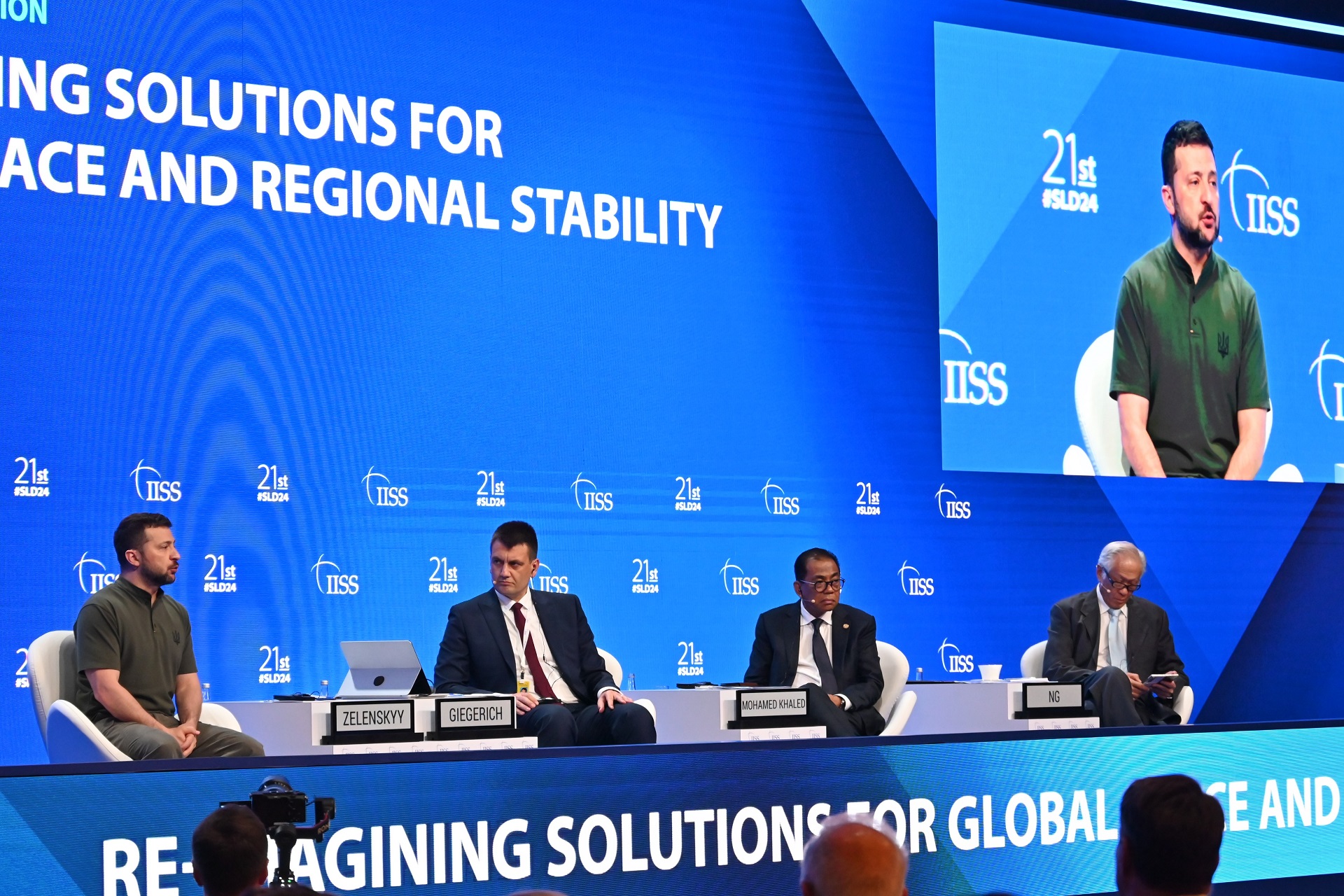
A call for peace at Shangri La Dialogue
02 Jun 2024
A repeated call for peace, especially in Asia. This was Minister for Defence Dr Ng Eng Hen's central message at the 21st Shangri La Dialogue (SLD), held from 31 May to 2 Jun.
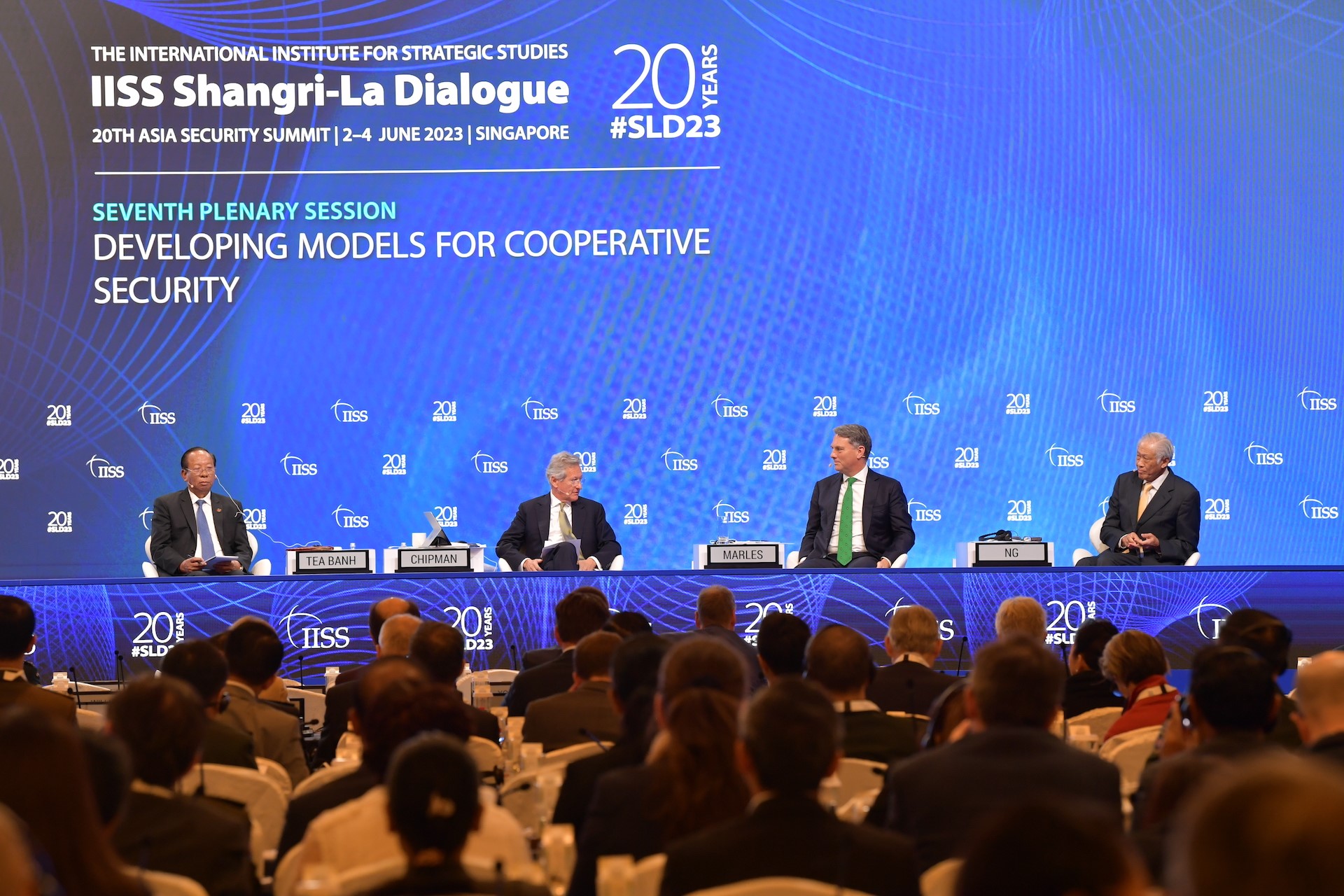
Shangri-La Dialogue sees frank discussion of security issues
04 Jun 2023
The 20th Shangri-La Dialogue, held from 2 to 4 Jun, saw ministers from around the world meet in Singapore to discuss key defence and security issues.
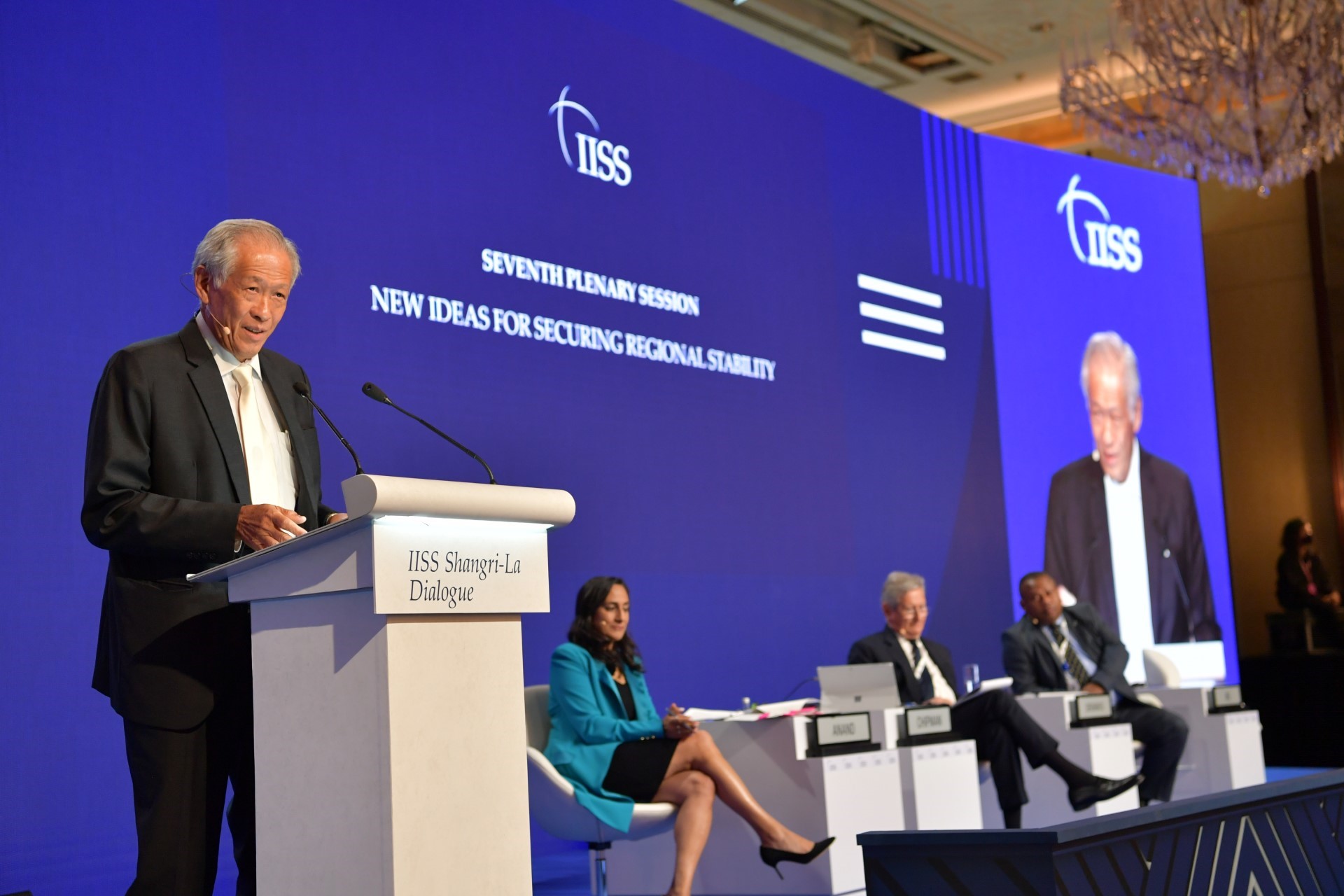
SLD remains valuable platform for crucial discussions: Dr Ng
12 Jun 2022
Minister for Defence Dr Ng Eng Hen spoke on the US-China relationship, the importance of a rules-based order and the role of ASEAN as a regional security platform at the 19th Shangri-La Dialogue (SLD).


